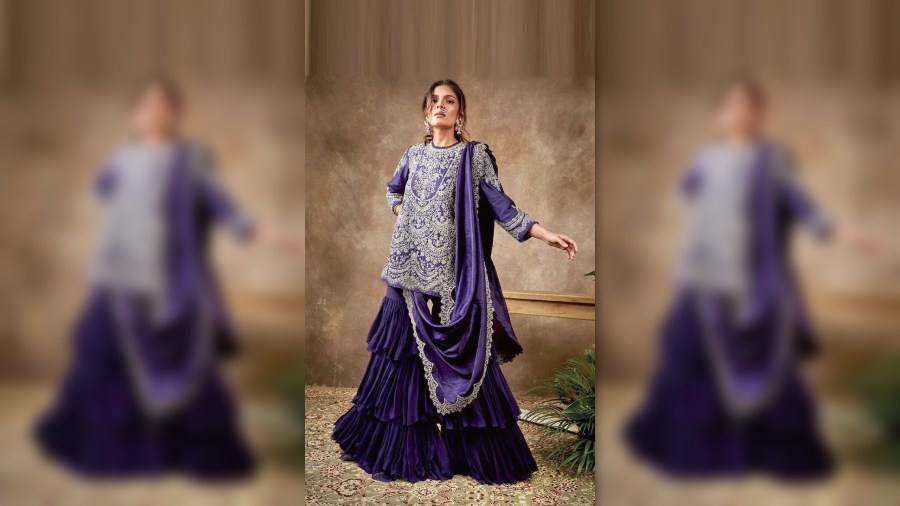The Designer’s Class, ‘India’s first digital education platform in the design space’, that launched last year with a bunch of celebrity ‘tutors’, has launched a new course on ‘Creation of Sustainable Brands and Processes’ and is to be conducted by Jayanti Reddy and Ateev Anand (of label re-). The Telegraph chatted with Jayanti and Ateev to get a peek into their classroom memories and how they view sustainability.
What memories of the classroom did this bring back?
Jayanti Reddy: As a student, I was always motivated to embrace a sustainable lifestyle — from recycling to upcycling to sensible buying. The classroom reignited my thirst for knowledge in areas of sustainability practice and theory including fashion ecosystems, global challenges of sustainability and building solutions.
Ateev Anand: My favourite classes in design school were history of costume because our tutor emphasised on sharing with us as opposed to trying to teach us. She created an environment of curiosity and discovery and I felt I got a small opportunity to do the same with this masterclass.
What kind of a student were you?
Jayanti: I’m still a student by nature with an innate curiosity about establishing eco-friendly fashion systems, figuring out solutions that help my business operate while keeping the sustainable values intact. Even as a student I was drawn towards nature, cultural history and fashion archives.
Ateev: In the words of a headmistress of mine, I ‘made up with hard work what I lacked in intelligence’.
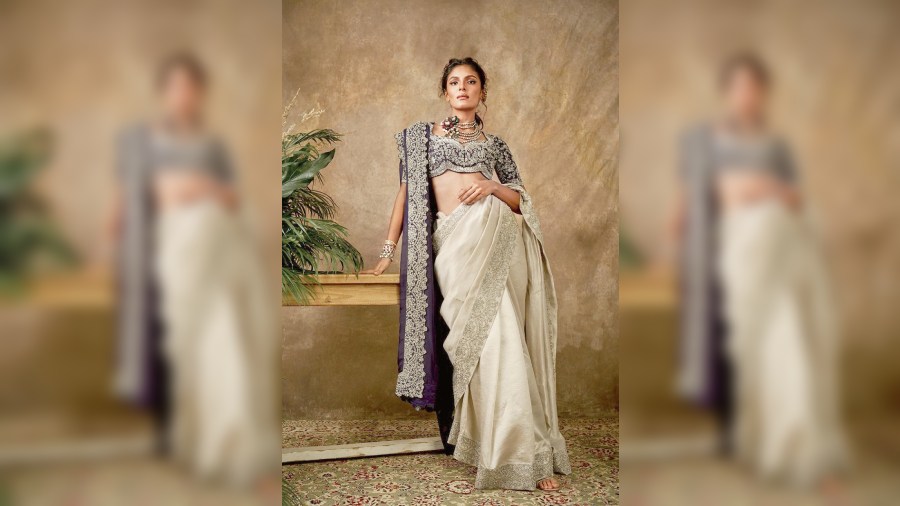
Jayanti Reddy creation
What was your favourite subject?
Jayanti: I was inclined towards history, which shaped my vision to always delve into the rich heritage pool of Indian craft techniques. From the Mughal period in India to European Renaissance, each epochal era inspired me immensely.
Ateev: I enjoyed illustration in design school.
After all these years, what of the classroom basics have stayed with you?
Jayanti: I’ve always harboured an inherent curiosity to explore subjects deeply. Hence the joy of constant research and exploration have stayed with me. To come up with sustainable solutions, we need to understand the subject fully.
Ateev: Practice. I like approaching life as a student always, constantly committed to practice.
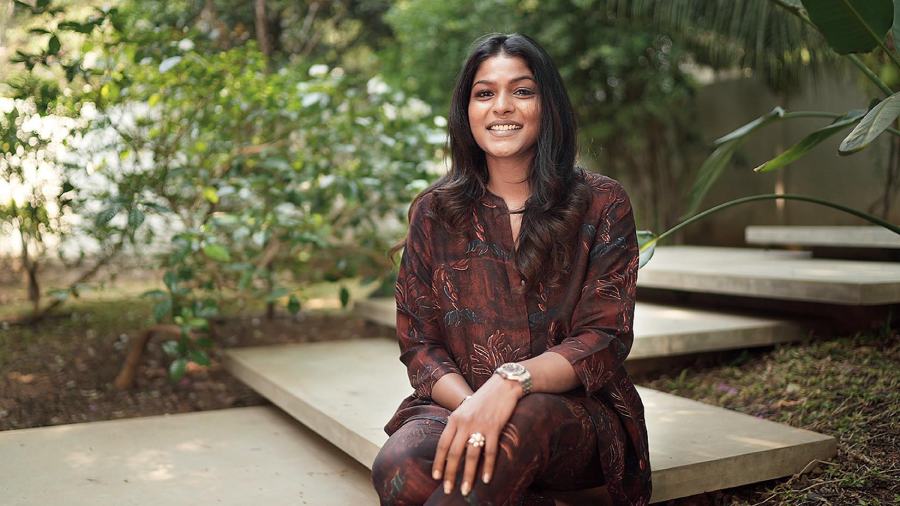
It’s an incredible feeling as my small but significant sustainable steps can help the planet in some way. Fast fashion has been detrimental to the planet and it’s time we collectively decided to shop less and opt for pieces that can be passed on to next generations — Jayanti Reddy
What is a sustainable way of life for you?
Jayanti: Buying sensibly, investing in heirloom pieces, valuing classics over trends and repeating pre-loved pieces I curated over the years.
Ateev: A life where one is respectful and able to live without fear.
How sustainable is your life right now?
Jayanti: The pandemic inspired me to be even more sustainable than ever before. Hence I always encourage my brides to go for heirloom pieces, value timeless designs over ostentatious ones.
Ateev: Sustainability isn’t an absolute. I see my life as an exploration. I am seeking to do better and be better every day. I feel I will be able to sustain this for as long as I am honest about my own needs and sensitive to the needs of everything around me.
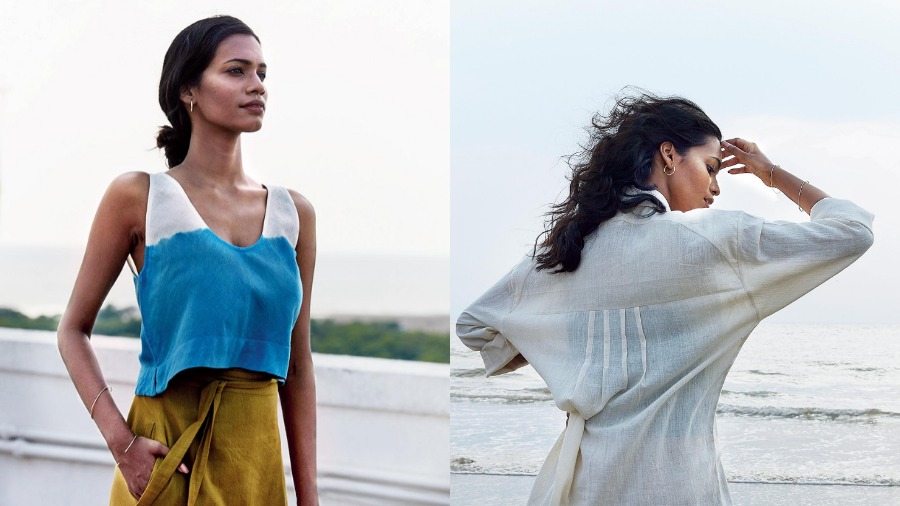
What have you kept in mind while building your individual brands?
Jayanti: I’ve focused on the idea of celebrating the weightlessness of pieces, creating an individualistic design lexicon, and letting the buyer be the stylist.
Ateev: We are committed to transparency and creating value for everyone involved in the product journey. This inspires our values and keeps the brand relevant. We remind ourselves constantly that we are not just making and selling products but fostering cycles of trust and consciousness.
What have been the challenges like?
Jayanti: To be 100 per cent sustainable needs a lot of investment but we can take baby steps. Recycling fabric wastes and scraps from previous seasons for new collections could be one step.
Ateev: Speed and scale are the biggest challenges. To be truly sustainable, one can’t rush. And since recycling happens at a large scale, it is tough to develop new ideas as a small-batch, slow-fashion brand.
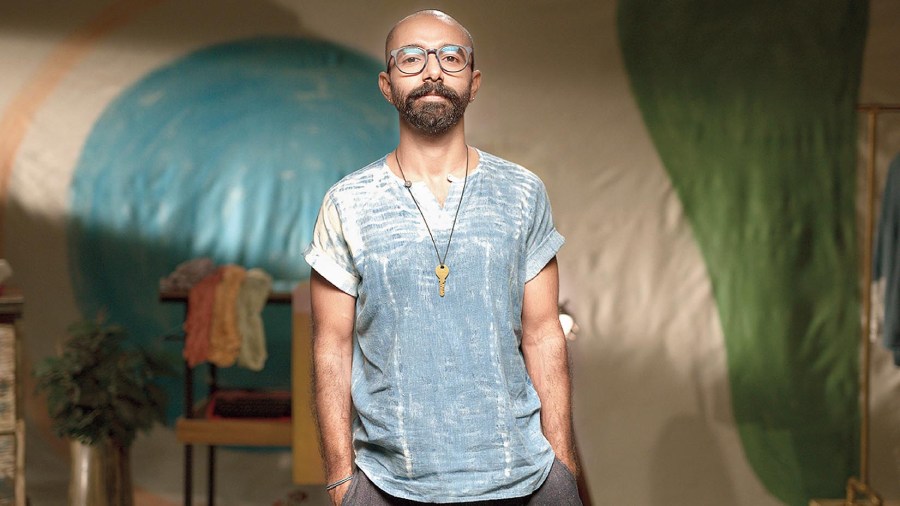
Sustainability isn’t an absolute. I see my life as an exploration. I am seeking to do better and be better every day. I feel I will be able to sustain this for as long as I am honest about my own needs and sensitive to the needs of everything around me — Ateev Anand
What are the joys that come out of this practice?
Jayanti: It’s an incredible feeling as my small but significant sustainable steps can help the planet in some way. Fast fashion has been detrimental to the planet and it’s time we collectively decided to shop less and opt for pieces that can be passed on to next generations.
Ateev: My biggest joy is watching the sense of community grow every day. Whether it is in the makers and their commitment to making something better so it serves longer or whether it is the consumers and their patience and support to ensure more ethical practices thrive. It is a true joy when each entity realises that what they do matters and is part of a bigger picture. Then they approach their choices with much more respect and love and that creates conscious consumption.
What is your target on a scale of 10?
Jayanti: I upcycle fabric scraps from my previous collections, nurture my team of karigars by providing them a sustainable atelier space and encourage my customers to go for classics than something of the moment. I try to scale down the embroidery in my ensembles so that they don’t weigh down the wearer.
Ateev: I’m not sure how to answer that. We’re always pushing ourselves to do better and choose better as makers. It is very hard and requires a lot of faith and patience as designers/entrepreneurs. I’d give us 9/10 for an honest effort. We are working innovatively, trying to integrate craft culture with circular practices. We work with around five ethnic handloom weaving clusters in India to develop slow, climate-positive fabrics that are created with raw materials that come from the recycling of textile waste. Sustaining indigenous techniques of the past while being sensible about our impact on the future, that’s how we’re pushing the envelope within our means.

